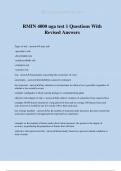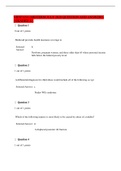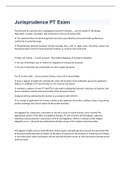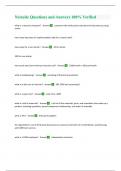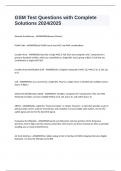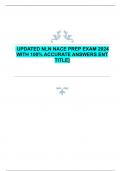Exam (elaborations)
RMIN 4000 uga test 1 Questions With Revised Answers
- Course
- Institution
©THEBRIGHTSTARS 2024 RMIN 4000 uga test 1 Questions With Revised Answers Types of risk - answer-pure risk -speculative risk -diversifiable risk -nondiversifiable risk -enterprise risk -systemic risk risk - answeruncertainty concerning the occurrence of a loss uncertainty - answerprobabil...
[Show more]
